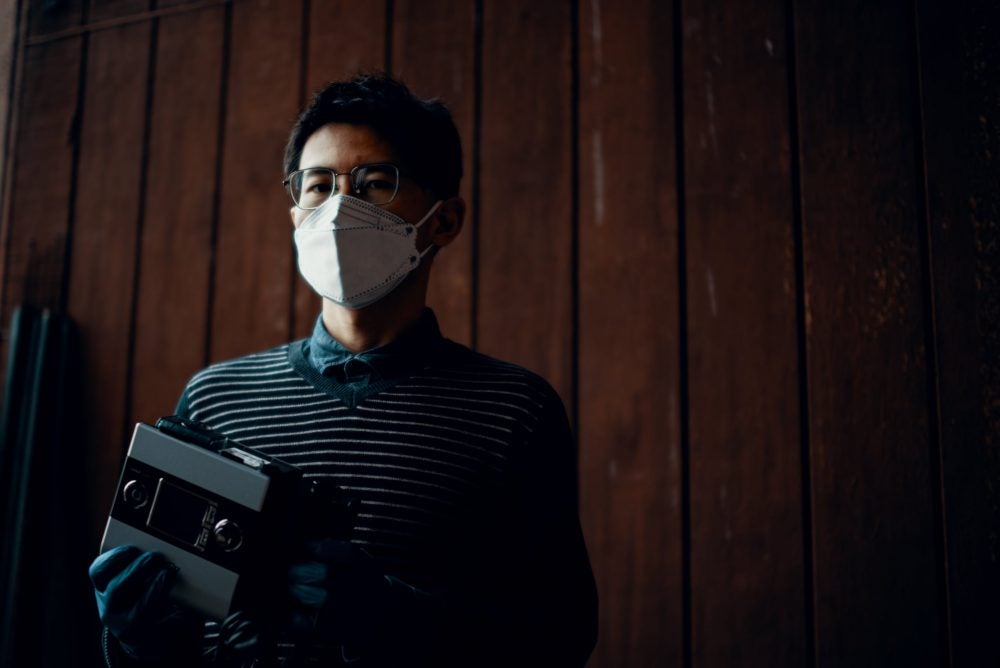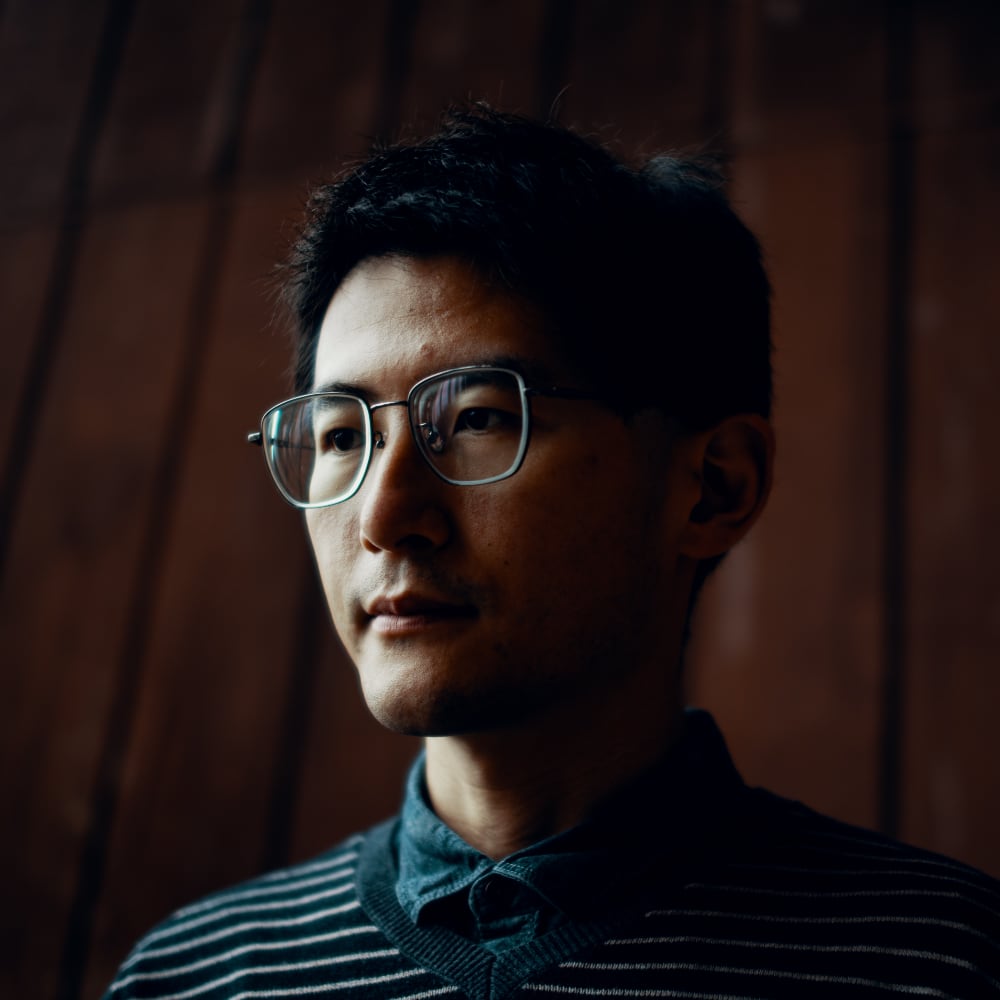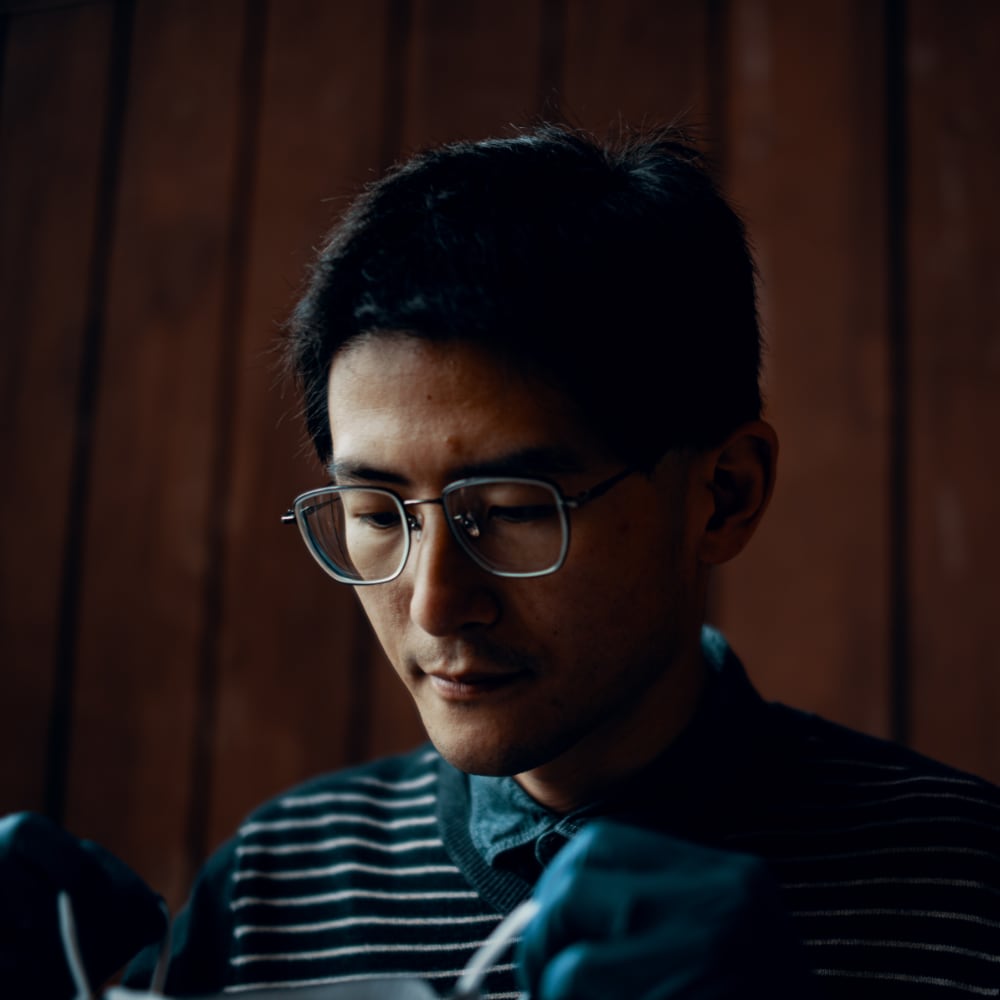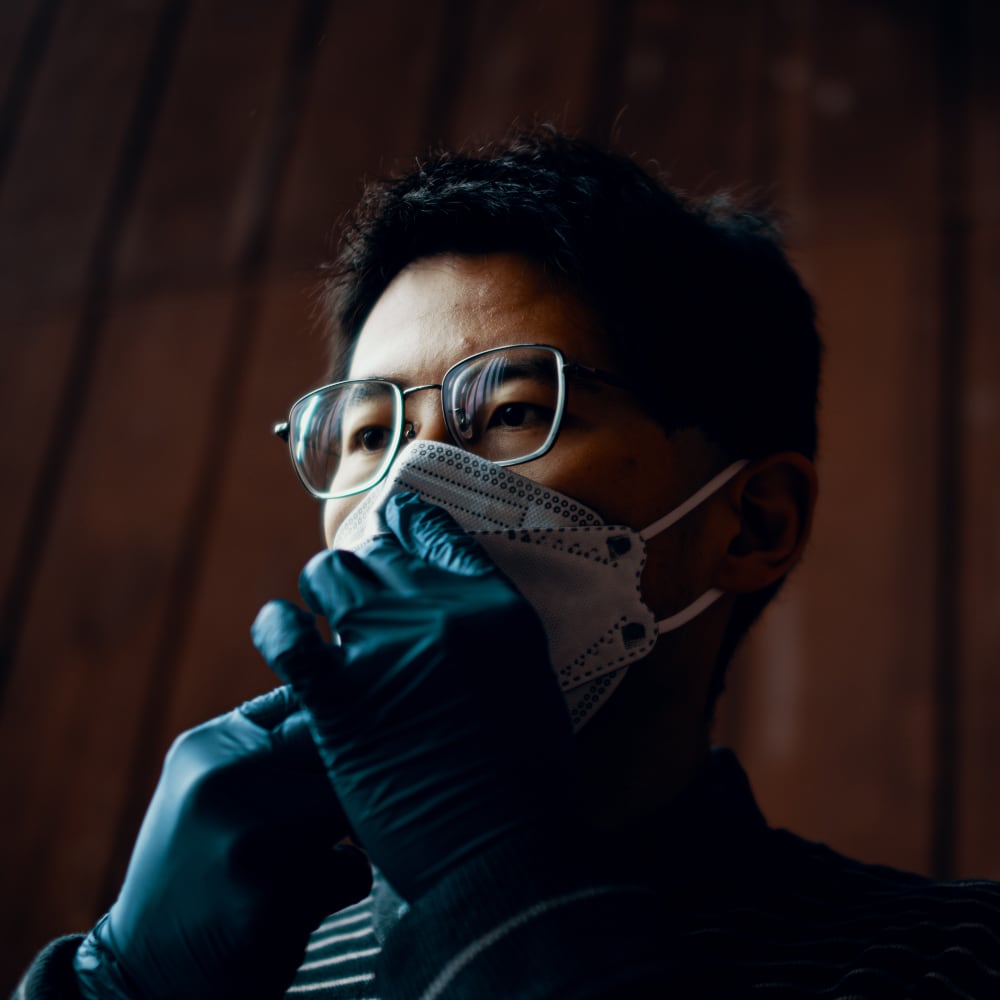
Professor Tao Wei holds a donated CPAP machine.
URI researchers are joining designers, doctors, and technologists statewide to collect and refurbish sleep apnea machines for use in hospitals.
Tao Wei, an associate professor of electrical, computer, and biomedical engineering, is working with VentilatorProject.Org, the Rhode Island Commerce Corp., the Rhode Island Department of Health, fire stations, and hospitals, among others, to collect and refurbish CPAP and BiPAP machines, used in treating sleep apnea patients. Named for the method by which they deliver pressurized air to the patient’s airways, the machines deliver positive airway pressure.
The goal is to collect, vet, and document innovative uses of these machines in the care of hospitalized COVID-19 patients without exposing health care workers to the aerosolized virus.
Wei said URI engineers and engineering students have the expertise to process these machines.
Organizers are asking people with unused machines to bring them to their nearest designated fire station. The machines will then be brought to URI, where a group of engineers, Ph.D. students, and other University volunteers 100-members strong will work on them in the Memorial Union Ballroom, which has been turned into a processing space. The team will sanitize, test, document, and refurbish the machines.
The Memorial Union ballroom is being transformed into a workspace.
Wei won a Young Investigator Program award from the Office of Naval Research in 2017, a three-year, more than half-million-dollar grant intended to fund early-career academic researchers and investigators, whose work potentially supports the Department of Defense. He was the first recipient of the award in URI’s history.



Wei is an expert on optoelectronic devices with a focus on low-cost, low-power sensing devices for many different applications. His research can be used to provide sensing capabilities for self-driving cars, robotics, smart cities, and wearable devices that improve the quality of life. The recipient of more than $2 million in research grants from the National Science Foundation, U.S. Navy and state of Rhode Island in the past five years, Wei also supports outreach activities to educate local K-12 students about electrical engineering and careers in the science, technology, engineering, and math fields.
Wei received his undergraduate degree from Nanjing Tech University in China and his Ph.D. from Missouri University of Science and Technology in Rolla, Mo.
There are still details to be worked through. Wei is excited by the URI community’s enthusiasm for the effort.
“I could not be more glad to be contributing to such an effort,” Wei said. “The whole University is just beautifully united. It’s important that we stand up together. I am proud of our engineering program and how we have taken responsibility to help out in this crisis.”
“We have a small army ready to go to work.”
CPAP machines are placed on a table in the workspace.
